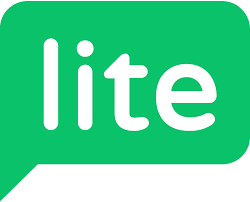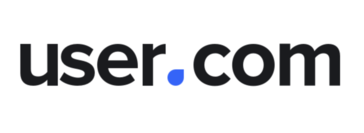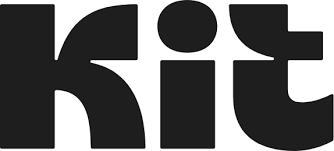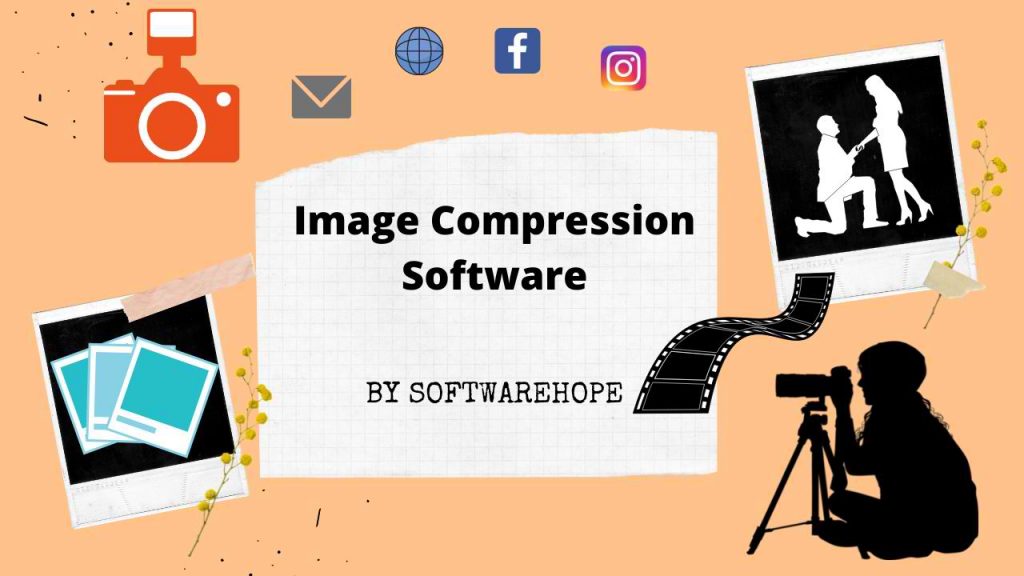Let’s be real — if you’re running a business in 2025, you need email marketing software. It’s not just about sending newsletters anymore (though those are still super useful). The best email marketing tools help you connect with customers, set up automations, and make your work a whole lot easier.
In this guide, I’ll show you 21 of the best email marketing software options out there. Looking for the best email marketing tools for small business? Or maybe free email automation with more advanced features? Either way, you’ll find it here. We’ll cover everything from budget-friendly picks to the big enterprise tools.
Table of Contents
Comparison of 21 Best Email Marketing Software Platforms For 2025
| Sr | Image | Name | Rating | Pricing | Compatibility | Features | Details Page |
|---|---|---|---|---|---|---|---|
| 1 |

|
MailerLite |
4.5
|
Freemium | Web-based,iOS,Android |
|
View Details |
| 2 |

|
Keap |
4.0
|
Paid | Windows, Mac, iOS, Android, Web-based |
|
View Details |
| 3 |

|
Mailchimp |
5.0
|
Freemium | Windows, Mac, iOS, Android, Web-based |
|
View Details |
| 4 |

|
SendX |
4.4
|
Paid | Windows,Mac,iOS,Android,Web-based |
|
View Details |
| 5 |

|
SendPulse |
4.3
|
Freemium | Windows,Mac,iOS,Android,Web-based |
|
View Details |
| 6 |

|
Freshmarketer |
4.1
|
Paid | Windows,Mac,iOS,Android,Web-based |
|
View Details |
| 7 |

|
Bitrix24 |
4.0
|
Freemium | Windows, Mac, Linux, iOS, Android, Web-based |
|
View Details |
| 8 |

|
User.com |
4.2
|
Paid | Windows,Mac,iOS,Android,Web-based |
|
View Details |
| 9 |

|
Direct Mail |
4.0
|
Paid | Mac,iOS |
|
View Details |
| 10 |

|
Emercury |
4.3
|
Paid | Windows,Mac,iOS,Android,Web-based |
|
View Details |
| 11 |

|
HubSpot |
5.0
|
Freemium | Windows, Mac, Linux, iOS, Android, Web-based |
|
View Details |
| 12 |

|
Moosend |
4.4
|
Freemium | Windows,Mac,iOS,Android,Web-based |
|
View Details |
| 13 |

|
Campaign Monitor |
4.2
|
Paid | Windows,Mac,iOS,Android,Web-based |
|
View Details |
| 14 |

|
SendGrid by Twilio |
4.1
|
Freemium | Windows,Mac,iOS,Android,Web-based |
|
View Details |
| 15 |

|
Salesforce |
5.0
|
Paid | Windows, Mac, iOS, Android |
|
View Details |
| 16 |

|
Benchmark |
4.0
|
Freemium | Windows,Mac,iOS,Android,Web-based |
|
View Details |
| 17 |

|
Zoho Campaigns |
3.9
|
Freemium | Windows,Mac,iOS,Android,Web-based |
|
View Details |
| 18 |

|
Litmus |
4.2
|
Paid | Windows,Mac,iOS,Android,Web-based |
|
View Details |
| 19 |

|
Robly |
3.8
|
Paid | Windows,Mac,iOS,Android,Web-based |
|
View Details |
| 20 |

|
ConvertKit |
4.5
|
Freemium | Windows,Mac,iOS,Android,Web-based |
|
View Details |
| 21 |

|
AWeber |
4.1
|
Freemium | Windows,Mac,iOS,Android,Web-based |
|
View Details |
1. MailerLite: MailerLite is an easy email marketing software to design cool newsletters fast.
MailerLite is one of those email marketing software platforms that just gets it right, you know? It is perfect for small businesses and creators who want something powerful but not overwhelming. The interface is super clean, and honestly. You will be sending your first campaign within minutes of signing up.
Not gonna lie, this one surprised me with how much you get for free. They’ve got drag-and-drop editors, automation workflows, and even landing page builders. You’ll see what I mean when you try it — it’s kinda like having a whole marketing team in one tool. Plus, their free email automation features are actually useful, unlike some other platforms that give you basically nothing.
Key Features
- Drag-and-drop email editor that’s honestly super intuitive to use
- Advanced automation workflows that trigger based on subscriber behavior
- Built-in landing page builder with mobile-responsive templates included
- A/B testing tools to optimize your email marketing campaigns effectively
- Pop-up and embedded form builders for growing your subscriber list
- Detailed analytics and reporting to track your email performance metrics
Pros & Cons
✅ Pros
- The free plan actually includes automation, which is pretty awesome
- Interface is clean and beginner-friendly — no confusing menus everywhere
- Customer support responds quickly and they're genuinely helpful people
- Pricing stays reasonable even as your subscriber list grows bigger
- Landing pages look professional without needing design skills at all
- Integration options work well with most popular business tools
❌ Cons
- Advanced features are somewhat limited compared to enterprise solutions
- Template selection could be bigger, though what's there works fine
Device Compatibility:
-
Yeah, it runs well on all the big platforms. You can use MailerLite through any web browser, and their mobile app works great on both iPhone and Android devices.
Pricing:
-
There’s a free plan for up to 1,000 subscribers — which is great for getting started. Paid plans begin at around $10/month for more subscribers and advanced features. Not too pricey, honestly.
Customer Support:
-
Support’s pretty decent — they’ve got live chat available 24/7, plus email support and a solid help center. The response times are usually under an hour, which is nice.
2. Keap: Keap is email marketing software that helps small businesses stay organized and grow.
Keap (people used to call it Infusionsoft) is kind of like the Swiss Army knife of email marketing software — it does a little bit of everything. It’s not just email. You also get built-in CRM tools, which makes it great if you want one spot to handle your whole customer journey from start to finish. Honestly, it’s pretty wild how much they fit into one platform.
Where Keap really shines is the automation. You can build detailed workflows that would normally take forever to do by hand. And that’s huge when you’re trying to warm up leads and turn them into real paying customers. The best email marketing tools for small business usually just stick to sending emails. But Keap? It goes way past that.
Key Features:
- Advanced CRM integration that manages your entire sales pipeline effectively
- Sophisticated automation sequences that can handle complex customer journeys
- Built-in e-commerce tools for selling products directly through email campaigns
- Lead scoring system that identifies your most engaged prospects automatically
- Appointment scheduling features integrated right into your email workflows
- Mobile app for managing campaigns and contacts while you’re on the go
Pros & Cons
✅ Pros
- The CRM features are honestly top-notch for managing customer relationships
- Automation possibilities are almost endless — you can get really creative
- E-commerce integration makes it easy to sell products through emails
- Reporting is detailed and actually helps you understand what's working
- Customer onboarding process is thorough and they really help you succeed
- Advanced segmentation options let you target exactly the right people
❌ Cons
- Learning curve is steeper than simpler email marketing platforms
- Pricing can get expensive as you add more contacts and features
- Interface feels a bit overwhelming for beginners who just want basics
Device Compatibility:
-
Works great on Windows, Mac, and through web browsers. The mobile app is available for both iPhone and Android, and honestly, it’s pretty well-designed.
Pricing:
-
Plans start around $79/month for basic features. It’s more expensive than simple email tools, but you’re getting CRM functionality too, so it’s actually decent value.
Customer Support:
-
Support’s available through phone, email, and live chat. They also offer training sessions and webinars, which is helpful when you’re learning the platform.
3. Mailchimp: Mailchimp is popular email marketing software to send emails and track results.
Mailchimp is probably the most well-known email marketing software, and honestly, that’s no surprise. They’ve been around for ages and have helped tons of businesses talk to their customers. What I really like about Mailchimp is that it’s still super easy for beginners, but they’ve also added a bunch of powerful tools over time.
It’s not just about email marketing anymore either. They have got websites, social media tools, and even postcards (yep, real ones you can send in the mail). When you hop into their dashboard, you’ll see what I mean. They’ve kind of built this whole little marketing world. Their free email automation is solid too, which makes it one of the best email marketing tools for small business owners who are just starting out.
Key Features:
- Intuitive drag-and-drop email builder with hundreds of professional templates
- Advanced audience segmentation based on behavior, demographics, and preferences
- Comprehensive automation workflows including welcome series and abandoned cart emails
- A/B testing capabilities for optimizing subject lines, content, and send times
- Built-in landing page creator with conversion tracking and analytics
- Social media advertising integration for Facebook and Instagram campaigns
Pros & Cons
✅ Pros
- Free plan includes up to 2,000 contacts, which is generous for beginners
- The interface is honestly one of the most user-friendly in the industry
- Template library is huge with designs for pretty much every industry
- Integration options are extensive — works with almost everything you use
- Analytics are detailed but presented in an easy-to-understand format
- Mobile app lets you manage campaigns and check stats on the go
❌ Cons
- Pricing jumps significantly once you exceed the free plan limits
- Customer support for free users is limited to email only, no chat
Device Compatibility:
-
Yeah, it works perfectly on all platforms — Windows, Mac, iOS, and Android. The mobile experience is particularly smooth and well-designed.
Pricing:
-
Free plan covers up to 2,000 contacts and 10,000 monthly emails. Paid plans start around $10/month. Not the cheapest, but the features justify the cost honestly.
Customer Support:
-
Support includes email help for everyone, plus live chat and phone support for paid users. Response times are usually pretty good, and they’ve got a comprehensive help center too.
4. SendX: SendX is simple email marketing software made for growing subscribers quickly.
SendX is one of those email marketing software tools that just sticks to the basics and nails them. Instead of trying to be everything at once, they made a platform that’s really good at email marketing and automation without all the random extras. Honestly, that’s kind of nice when so many tools try to do way too much.
What makes SendX stand out is the unlimited email sends on every plan. Yep, unlimited. Most other email marketing software charges you for how many emails you send, but with SendX, the only thing that matters is how many subscribers you’ve got. And when you look at their pricing, you’ll see why that’s such a big deal. For businesses that send a lot of emails, it’s a total game-changer. The way they handle email marketing is simple but still really powerful.
Key Features:
- Unlimited email sends on all plans, which saves money for active senders
- Drag-and-drop email editor with responsive templates that look professional
- Advanced automation sequences including drip campaigns and behavioral triggers
- Built-in landing page builder with high-converting templates and A/B testing
- List cleaning tools that automatically remove inactive subscribers for better deliverability
- Heat map tracking shows exactly where subscribers click in your emails
Pros & Cons
✅ Pros
- Unlimited sending is honestly amazing value if you email frequently
- The interface is clean and doesn't overwhelm you with unnecessary options
- Automation features are powerful but still easy to set up for beginners
- Landing pages look great and convert well without needing design skills
- List management tools help maintain good sender reputation automatically
- Customer support is responsive and actually knows their product well
❌ Cons
- Feature set is more limited compared to all-in-one marketing platforms
- Template library could use more variety, though what's there works fine
Device Compatibility:
-
Works great through any web browser on Windows, Mac, or mobile devices. No dedicated mobile app, but the web interface is responsive and works fine on phones.
Pricing:
-
Plans start around $7.49/month for up to 1,000 subscribers with unlimited emails. That’s honestly incredible value compared to most email marketing tools.
Customer Support:
-
Support’s available through live chat and email, plus they’ve got helpful video tutorials. Response times are usually under a few hours, which is pretty good.
5. SendPulse: SendPulse is smart email marketing software that mixes email with chat and SMS.
SendPulse is kind of like having a bunch of marketing tools in one spot, and honestly, they pull it off really well. It’s not just an email marketing software — you also get SMS marketing, web push alerts, and even chatbots. That makes it great for any business that wants to reach people in different ways without messing around with five different apps.
The email side of things is strong, but the big win here is the multi-channel setup. You can run campaigns that mix emails, texts, and push alerts all at the same time. That way, your message has way more chances to get noticed. And here’s the cool part: their free plan gives you up to 15,000 emails every month with free email automation. For the best email marketing tools for small business, that’s one of the most generous free plans you’ll find.
Key Features:
- Multi-channel campaigns combining email, SMS, and web push notifications seamlessly
- AI-powered personalization that optimizes content for individual subscribers automatically
- Advanced segmentation based on user behavior across all communication channels
- Drag-and-drop editor with responsive templates and custom HTML options
- A/B testing for subject lines, content, images, and optimal sending times
- Detailed analytics dashboard tracking performance across all marketing channels
Pros & Cons
✅ Pros
- Free plan includes 15,000 emails monthly, which is honestly very generous
- Multi-channel approach lets you reach customers however they prefer
- AI features actually work well and improve campaign performance noticeably
- Interface is intuitive despite having so many different features available
- SMS marketing integration is seamless and doesn't require separate setup
- Customer onboarding process is thorough and helps you get results faster
❌ Cons
- Can feel overwhelming at first with so many features to explore
- Some advanced features require learning time to use effectively
Device Compatibility:
-
Yeah, works perfectly on all major platforms including Windows, Mac, iOS, and Android. The mobile experience is well-optimized for managing campaigns on the go.
Pricing:
-
Free plan covers up to 500 subscribers with 15,000 monthly emails. Paid plans start around $6.40/month. Pretty reasonable for what you get, honestly.
Customer Support:
-
Support includes 24/7 live chat, email help, and phone support for paid plans. They also offer free consultations to help optimize your campaigns.
6. Freshmarketer: Freshmarketer is email marketing software that makes customer follow-ups super easy.
Freshmarketer is part of the Freshworks family, and it’s got that same easy-to-use vibe you’ll find in their other tools. What’s cool is how it links right up with CRM and customer support if you’re already using Freshworks. But even if you’re not, it still works great on its own as an email marketing software.
The main thing here is marketing automation and mapping out customer journeys. You can actually see how people move through your campaigns, which is pretty neat. And honestly, the drag-and-drop workflow builder is one of the best out there. Setting up even tricky automation feels more like stacking blocks than doing a bunch of coding.
Key Features:
- Visual journey builder that maps out complex customer workflows intuitively
- Advanced behavioral tracking that triggers emails based on website activity
- Built-in CRM integration for managing leads and customers in one place
- A/B testing for emails, landing pages, and entire campaign sequences
- Heat map analytics showing exactly how subscribers interact with content
- Smart segmentation that automatically groups subscribers based on behavior patterns
Pros & Cons
✅ Pros
- Journey builder is honestly one of the most intuitive I've used anywhere
- Integration with other Freshworks products creates a seamless workflow
- Behavioral tracking gives you insights into what subscribers really want
- Interface design is clean and modern without feeling cluttered at all
- Customer support quality is consistently high across all Freshworks products
- Reporting dashboards provide actionable insights rather than just raw numbers
❌ Cons
- Pricing can get expensive as you add more contacts and advanced features
- Learning curve exists for businesses new to marketing automation concepts
Device Compatibility:
Works great on Windows, Mac, and mobile browsers. There’s a mobile app that’s decent for checking stats and basic campaign management tasks.
Pricing:
Plans start around $15/month for basic features. It’s positioned as a premium solution, so pricing reflects that, but the features justify the cost.
Customer Support:
Support’s excellent — 24/7 chat, phone, and email with knowledgeable agents. They also offer training sessions and implementation help for new users.
7. Bitrix24: Bitrix24 is email marketing software with CRM tools for teams that work together.
Freshmarketer is part of the Freshworks family, and it keeps that same simple style their other tools have. The best part? It connects easily with CRM and customer support if you already use Freshworks. But even if you don’t, it still works great as a standalone email marketing software.
The big focus here is on automation and customer journey mapping. You can see how people move step by step through your campaigns, which is pretty cool. And the visual workflow builder? Honestly, it’s one of the best. Making even complex automation feels more like building with blocks than messing with code.
Key Features:
- Complete CRM integration that manages the entire customer lifecycle automatically
- Email marketing campaigns with automation and drip sequence capabilities
- Built-in social media management for Facebook, Twitter, and Instagram
- Project management tools including tasks, calendars, and team collaboration
- Document management system with cloud storage and version control
- Video conferencing and internal communication tools for remote teams
Pros & Cons
✅ Pros
- Free plan is incredibly generous — includes CRM and email marketing for life
- Having everything in one platform eliminates the need for multiple subscriptions
- CRM features are honestly enterprise-level quality at no cost
- Collaboration tools work great for teams that need to coordinate campaigns
- Mobile apps are well-designed and let you manage business on the go
- Regular updates add new features without increasing costs for existing users
❌ Cons
- Interface can feel overwhelming due to the sheer number of features available
- Email marketing tools aren't as advanced as dedicated platforms offer
Device Compatibility:
Yeah, it works on everything — Windows, Mac, iOS, Android, plus web browsers. The mobile experience is particularly good for managing contacts and basic tasks.
Pricing:
Free forever for up to 12 users with 5GB storage. Paid plans start around $19/month for additional storage and advanced features. Honestly amazing value.
Customer Support:
Support includes online help desk, community forums, and extensive documentation. Response times vary, but the community is pretty helpful for common questions.
8. User.com: User.com is email marketing software that automates chats, emails, and more.
User.com is one of those email marketing software tools that actually gets how to use customer data the right way. They’ve built the whole thing around tracking what people do and turning that into super-targeted campaigns. So if you want emails that feel like they’re written just for each person on your list, this platform makes that happen without being super hard to figure out.
The best part about User.com is its real-time personalization engine. It changes the email content based on what someone is doing on your site right now. That kind of personalization used to only be in expensive enterprise tools. But User.com brings it to small businesses too. You’ll see what I mean once you set up your first behavioral campaign.
Key Features:
- Real-time behavioral tracking that personalizes emails based on current website activity
- Advanced segmentation using demographic, behavioral, and custom attribute data
- Multi-channel campaigns combining email, SMS, and in-app messaging seamlessly
- Visual automation builder with pre-built workflows for common scenarios
- Dynamic content blocks that change based on individual subscriber preferences
- Comprehensive analytics dashboard with conversion tracking and revenue attribution
Pros & Cons
✅ Pros
- Personalization features are honestly some of the best I've seen anywhere
- Real-time triggers mean your emails always feel timely and relevant
- Interface strikes a good balance between powerful and user-friendly
- Customer data management is sophisticated but doesn't require technical skills
- Integration options work well with most e-commerce and business tools
- Support team actually understands marketing strategy, not just technical issues
❌ Cons
- Pricing can get expensive as you scale up contacts and features
- Learning curve exists for businesses new to behavioral marketing concepts
Device Compatibility:
Works perfectly through web browsers on Windows, Mac, and mobile devices. No dedicated mobile app, but the responsive design works fine on phones.
Pricing:
Plans start around $25/month for basic features. It’s positioned as a premium solution, but the personalization capabilities justify the higher cost honestly.
Customer Support:
Support’s available through live chat and email, plus they offer strategic consultations. Response times are usually under an hour, and the team knows their stuff.
9. Direct Mail: Direct Mail is email marketing software made just for Mac users.
Direct Mail is Apple’s own take on email marketing software, and you can tell right away. The design is super clean and the whole thing just feels easy to use. It only works on Mac, which is actually a plus if you’re deep in the Apple world. It just clicks with your Mac, iPhone, and the rest of your Apple stuff.
What’s cool about Direct Mail is how simple it is. Instead of loading you up with tons of extra features you’ll never use, they kept it focused on the basics. And that’s nice because most email marketing tools try to do everything at once. The drag-and-drop editor feels kind of like Pages or other Mac apps, so if you’re already comfy with Apple software, you’ll pick this up right away.
Key Features:
- Native Mac application that integrates seamlessly with Apple’s ecosystem
- Intuitive drag-and-drop editor designed specifically for Mac users
- Built-in photo editing tools that work like other Mac creative applications
- Automatic list management with smart filtering and segmentation options
- Professional templates optimized for mobile devices and various industries
- Detailed delivery and engagement analytics with visual reporting dashboards
Pros & Cons
✅ Pros
- Interface feels familiar and intuitive to anyone using Mac products already
- Photo editing integration eliminates the need for separate design software
- Performance is honestly excellent since it's built specifically for Mac
- No monthly subscription fees — you buy it once and own it forever
- Integration with Mac contacts and other Apple apps works seamlessly
- Updates are regular and typically add useful features without extra cost
❌ Cons
- Only available for Mac users, so PC users are completely out of luck
- Feature set is more limited compared to comprehensive online platforms
Device Compatibility:
Mac only — works on macOS systems and integrates with iPhone and iPad for managing campaigns. If you’re not in the Apple ecosystem, this isn’t an option.
Pricing:
One-time purchase around $39.99 from the Mac App Store. No monthly fees, which is honestly refreshing compared to subscription-based alternatives.
Customer Support:
Support’s handled through Apple’s standard channels plus the developer’s website. Documentation is good, and the Mac community is usually helpful with questions.
10. Emercury: Emercury is flexible email marketing software that lets you send and test campaigns.
Emercury is one of those email marketing software platforms that’s all about getting your emails into the inbox. Not the spam folder, the actual inbox. And that’s huge, because if people don’t even see your emails, what’s the point, right? They’ve built their whole name on helping businesses get better open rates and stronger email results. Honestly, that’s the number one thing every email campaign needs.
What really makes Emercury different is how they treat their customers. It’s not just “here’s the software, good luck.” They actually work with you to make your campaigns better. That kind of hands-on help is super rare in the best email marketing software world. You’ll notice it too, when their team helps boost your deliverability and your overall results.
Key Features:
- Premium IP addresses and domain authentication for maximum deliverability rates
- Advanced list hygiene tools that automatically remove problematic email addresses
- Personalized campaign optimization with dedicated success managers for guidance
- Sophisticated automation workflows with behavioral triggers and custom sequences
- Detailed deliverability monitoring with spam score checking before sending
- Custom integrations and API access for businesses with specific requirements
Pros & Cons
✅ Pros
- Deliverability rates are honestly among the best in the industry
- Personal support feels like having an email marketing consultant on your team
- List management tools actively protect your sender reputation over time
- Automation features are powerful but don't overwhelm beginners with complexity
- Integration options work well with most CRM and e-commerce platforms
- Campaign optimization suggestions actually improve performance measurably
❌ Cons
- Pricing is higher than basic email marketing platforms, but you get what you pay for
- Minimum commitment may be required for accessing premium features
Device Compatibility:
Yeah, works great through web browsers on all platforms — Windows, Mac, iOS, and Android. The interface is optimized for desktop use but functions well on mobile.
Pricing:
Custom pricing based on your needs and volume. It’s positioned as a premium service, so expect to pay more than basic tools, but the results justify it.
Customer Support:
Support’s exceptional — dedicated account managers, phone, email, and strategic consultations. This is honestly some of the best support I’ve encountered.
11. HubSpot: HubSpot is powerful email marketing software with everything for sales and marketing.
HubSpot is kind of the big boss of inbound marketing, and their email marketing software is just one part of a super complete system. If you’re looking for the best email marketing tools for small business that can also handle big company growth later, HubSpot’s worth checking out. Their free plan gives you more stuff than what a lot of paid tools even offer.
The best thing about HubSpot is how everything works together — your emails, website, social media, and customer info all connect in one place. You’ll get it once you set up your first campaign and see how much customer data you can actually use. That’s huge when you want to send emails that people care about and click on. And their free email automation? Honestly, that’s the bar other “free” plans should try to reach.
Key Features:
- Complete CRM integration that tracks the entire customer journey automatically
- Advanced marketing automation with visual workflow builders and smart triggers
- Comprehensive analytics including revenue attribution and customer lifetime value
- Built-in landing page and website builder with SEO optimization tools
- Social media management and monitoring integrated into email campaigns
- Lead scoring and nurturing systems that identify sales-ready prospects
Pros & Cons
✅ Pros
- Free plan includes CRM, email marketing, and tons of other tools permanently
- Integration between all features creates incredibly powerful marketing workflows
- Analytics and reporting are honestly the most detailed I've seen anywhere
- Educational resources and certification programs help you become better at marketing
- Customer support quality is consistently excellent across all service levels
- Platform scales beautifully from solo entrepreneurs to large enterprise teams
❌ Cons
- Learning curve can be steep due to the sheer number of features available
- Pricing for paid plans gets expensive quickly as you add more contacts
Device Compatibility:
Works perfectly on all platforms — Windows, Mac, iOS, Android, plus excellent mobile apps. The mobile experience is particularly well-designed for managing contacts.
Pricing:
Free forever plan includes email marketing for up to 2,000 contacts. Paid plans start around $45/month. Premium pricing, but you’re getting enterprise-level functionality.
Customer Support:
Support includes phone, email, live chat, plus extensive training resources. HubSpot Academy offers free certification courses that are honestly incredibly valuable.
12. Moosend: Moosend is budget-friendly email marketing software with cool templates.
Moosend is one of those email marketing software tools that gives you way more than you’d expect for the price. They’ve packed in stuff you usually only see in big, expensive platforms—like smart automation and personalization—but kept it simple and affordable. It’s kind of wild how much they offer without making the dashboard feel confusing.
The coolest part has to be their automation editor. It’s drag-and-drop, so you can set up really advanced campaigns without coding or stressing out. You can make workflows that react to what people do—like what they click, buy, or even when they visit your site. And the ready-to-use templates? Honestly, they’re so solid you’ll wonder why other tools make things so tricky.
If you want something powerful but still easy to handle, Moosend is hands-down one of the best email marketing software options out there. It’s especially great if you’re running a small business and need the best email marketing tools for small business that won’t break the bank. Plus, their free email automation features make it a no-brainer to try.
Key Features:
- Advanced automation workflows with drag-and-drop visual editor and pre-built templates
- Real-time personalization based on subscriber behavior, preferences, and purchase history
- Comprehensive A/B testing for subject lines, content, images, and send times
- Built-in landing page creator with high-converting templates and analytics tracking
- E-commerce integration with abandoned cart recovery and product recommendation engines
- Detailed analytics dashboard with performance tracking and revenue attribution
Pros & Cons
✅ Pros
- Free plan is honestly one of the most generous available anywhere
- Automation features rival platforms that cost significantly more money
- Interface strikes perfect balance between powerful and easy to use
- Customer support is responsive and actually helps solve problems quickly
- Template library includes modern designs that look professional without customization
- Pricing remains reasonable even as your subscriber list grows larger
❌ Cons
- Brand recognition isn't as strong as some established competitors
- Advanced features sometimes require exploring help documentation to find
Device Compatibility:
Yeah, works great on all platforms through web browsers. Mobile responsiveness is excellent, and they’re developing dedicated mobile apps for campaign management.
Pricing:
Free forever for up to 1,000 subscribers with unlimited emails. Paid plans start around $8/month. That’s honestly incredible value for what you get.
Customer Support:
Support includes 24/7 live chat and email help, plus comprehensive tutorials. Response times are usually under 30 minutes, which is pretty impressive.
13. Campaign Monitor: Campaign Monitor is email marketing software known for beautiful email designs.
Campaign Monitor is known for making emails that people actually open and click. Their email marketing software is all about design and looks, which makes sense since they started out helping agencies and design pros. If you want your emails to look amazing without having design skills, this tool’s got you covered.
The big win here is their template library and all the ways you can tweak it. Every template is already mobile-friendly and looks super professional, but you can still make it match your brand so it feels one of a kind. That is a lifesaver if you don’t have a design team but still want pro results. Their drag and drop editor is honestly one of the easiest I have tried, and the finished emails always look polished.
Key Features:
- Professional email templates designed by experts and optimized for all devices
- Intuitive drag-and-drop editor with advanced customization options for branding
- Automated customer journey mapping with behavioral triggers and personalized content
- Advanced segmentation tools based on demographics, behavior, and engagement history
- Comprehensive analytics including heat maps, click tracking, and conversion metrics
- Agency features for managing multiple client accounts from one dashboard
Pros & Cons
✅ Pros
- Template quality is honestly among the best in the entire industry
- Email designs always look professional and render perfectly across devices
- User interface is clean and doesn't overwhelm you with unnecessary options
- Customer support is knowledgeable and responds quickly to questions
- Analytics provide actionable insights rather than just raw numbers
- Agency tools make it easy to manage campaigns for multiple clients
❌ Cons
- Pricing is higher than basic email marketing platforms, especially for larger lists
- Advanced automation features aren't as comprehensive as some competitors
Device Compatibility:
Works perfectly through web browsers on Windows, Mac, and mobile devices. The interface is optimized for desktop design work but functions well on tablets.
Pricing:
Plans start around $9/month for basic features. It’s premium pricing, but the design quality and deliverability rates justify the cost honestly.
Customer Support:
Support includes phone, email, and live chat with response times usually under an hour. They also offer design consultation services for premium accounts.
14. SendGrid by Twilio: SendGrid by Twilio is reliable email marketing software for high-volume senders.
SendGrid by Twilio isn’t your usual email marketing software. It’s more like an email setup that runs in the background, but now they’ve added some marketing tools too. That means you can actually use it for business campaigns, not just boring tech stuff. It’s a good pick for developers or tech-minded businesses that want full control over how their emails work. And if you need one system that can send both everyday transactional emails and marketing campaigns, SendGrid makes sense.
The real power here is in how strong and big the platform is. They send billions of emails every month for giants like Uber, Spotify, and Airbnb. For a small business, that kind of power might feel like way too much, but it’s nice to know your emails won’t just disappear. The deliverability tools and tracking are next-level, almost like having a huge company’s email setup, but without needing your own IT team.
Key Features:
- Enterprise-grade email infrastructure capable of handling millions of emails daily
- Advanced deliverability tools including IP warming, domain authentication, and reputation monitoring
- Comprehensive API for developers who want complete control over email functionality
- Marketing campaign tools with automation, segmentation, and analytics capabilities
- Real-time email activity tracking with detailed logs and performance metrics
- Integration options for virtually every business platform and development framework
Pros & Cons
✅ Pros
- Deliverability rates are honestly among the best available anywhere
- Infrastructure scales infinitely — handles everything from hundreds to millions of emails
- API documentation is excellent and makes integration straightforward for developers
- Reliability is exceptional with 99.9% uptime and redundant systems worldwide
- Analytics provide incredibly detailed insights into email performance and deliverability
- Customer support includes technical expertise for complex implementation questions
❌ Cons
- Interface feels more technical than user-friendly compared to marketing-focused platforms
- Pricing can get expensive for high-volume senders, though it's competitive for the reliability
Device Compatibility:
Works through web browsers and comprehensive APIs that integrate with any platform. Mobile access is functional but optimized more for monitoring than campaign creation.
Pricing:
Free plan includes 100 emails daily forever. Paid plans start around $14.95/month. Pricing scales with volume, so it can get expensive for large senders.
Customer Support:
Support includes email, phone, and extensive documentation. Technical support is excellent for developers, though marketing support is more basic.
15. Salesforce: Salesforce is big email marketing software with strong CRM tools built-in.
Salesforce’s email marketing software (yep, part of Marketing Cloud) is kind of the big boss when it comes to enterprise marketing. And here’s the thing — it’s not just email. It is this whole customer experience platform that also happens to have insanely strong email tools built in. If you are running a big company with lots of customer journeys, Salesforce can basically handle whatever you toss its way.
The coolest part? The AI. Einstein AI takes your customer data and does the smart stuff for you like picking the best send times, tweaking subject lines, and personalizing content so it actually connects. Super handy when you’ve got campaigns going out to thousands (or even millions) of people. Sure, the learning curve is steep. But once you figure it out, the payoff is huge. It is a total game changer if you need heavy-duty, enterprise-level email marketing software.
Key Features:
- AI-powered personalization using Einstein technology for automatic optimization
- Complete customer journey mapping across email, social, mobile, and advertising channels
- Advanced automation with sophisticated triggers, conditions, and multi-channel workflows
- Enterprise-grade analytics with custom reporting, dashboards, and ROI tracking
- Integration with Salesforce CRM for seamless customer data management
- Multi-channel campaign orchestration including SMS, social media, and push notifications
Pros & Cons
✅ Pros
- Feature set is honestly the most comprehensive available in any platform
- AI capabilities actually work and improve campaign performance measurably
- Integration with Salesforce CRM creates incredibly powerful customer insights
- Scalability handles everything from thousands to millions of contacts seamlessly
- Analytics and reporting capabilities are enterprise-level and highly customizable
- Customer support includes dedicated account management and strategic consulting
❌ Cons
- Pricing is expensive and typically requires annual contracts for full functionality
- Learning curve is very steep and usually requires dedicated training and certification
Device Compatibility:
Works through web browsers on all platforms with mobile apps for iOS and Android. The interface is optimized for desktop use due to complexity.
Pricing:
Custom pricing typically starts around $1,250/month for basic features. This is enterprise software with enterprise pricing, but the capabilities justify it for large businesses.
Customer Support:
Support includes dedicated account managers, phone support, and extensive training resources. Trailhead offers free certification programs that are honestly world-class.
16. Benchmark: Benchmark is easy-to-use email marketing software for quick email campaigns.
Benchmark Email is one of those email marketing software tools that just makes sense. It’s built for small and medium businesses that want something strong but not too complicated. The whole setup is about making good-looking, mobile-friendly emails with a simple drag-and-drop editor. That way, you can keep your audience interested, warm up leads, and see how your emails are doing.
What surprised me most is how easy it is to use. Email marketing can feel scary at first, but Benchmark makes it way less overwhelming. Their Free plan is a solid way to learn, and the Pro plan won’t empty your wallet either. The best email marketing software doesn’t always have to cost a ton, and Benchmark proves that. You’ll get it once you play with their drag-and-drop editor — it’s smooth and lets you build campaigns without needing any coding skills.
Key Features:
- Drag-and-drop email builder that’s honestly super intuitive for beginners
- A/B testing capabilities so you can see what actually works with your audience
- Marketing automation workflows that help with free email automation tasks
- Integration with popular tools like Canva and Shopify for better campaigns
- Real-time reporting and analytics that show you exactly how your emails perform
- Landing page creator that’s surprisingly helpful for lead generation
Pros & Cons
✅ Pros
- The best part is the free plan that actually includes useful features for getting started
- Honestly, I liked how easy it is to create professional-looking emails without design skills
- Customer support is available 24/7 through phone, chat, and email which is pretty solid
- They offer a 25% discount for registered non-profit organizations which is thoughtful
- Integration options are pretty extensive, especially through Zapier connections
- The interface feels clean and doesn't overwhelm you with too many options at once
❌ Cons
- Free plan is kinda limited compared to what some competitors offer
- Automation features aren't as advanced as some of the pricier email marketing tools
- The built-in integrations could be more robust without needing third-party tools
- Sometimes the loading times can be a bit slow during peak hours
Device Compatibility:
Yeah, it runs well on all the big platforms. Benchmark works through web browsers, so you can access it from Windows, Mac, iOS, and Android devices. No app downloads needed — just log in from wherever you are.
Pricing:
There’s a free plan too — which is great for up to 2,000 subscribers. Paid plans start at around $3 per month, which honestly isn’t too pricey for what you get. The pricing scales with your subscriber count, so you only pay for what you actually need.
Customer Support:
Support’s decent — they offer customer support around the clock through phone, chat and email. From what I’ve seen, they’re pretty responsive, especially on the chat feature. The help center has tons of tutorials too, which is nice when you’re just starting out.
17. Zoho Campaigns: Zoho Campaigns is affordable email marketing software for small businesses.
Zoho Campaigns is part of the bigger Zoho family, which is pretty awesome if you are already using other Zoho apps. This email marketing software keeps things simple but still powerful. It’s made for small businesses that don’t want to mess with tricky setups. Instead of trying to do everything, it just focuses on email marketing — and does it really well.
That’s super handy if you just want something easy to use. It works smooth with their CRM and other business tools. And the free email automation they give you is honestly way better than you had expect for the price. If you want a tool that feels pro but doesn’t take forever to figure out, this is a solid pick.
Key Features:
- Easy drag-and-drop email editor that makes creating campaigns feel effortless
- Built-in CRM integration that helps you manage contacts and track customer journeys
- Social media campaign management so you can coordinate all your marketing efforts
- A/B testing tools to figure out what subject lines and content work best
- Autoresponder sequences for nurturing leads without manual work every time
- Ready-made templates that actually look good and save you tons of design time
Pros & Cons
✅ Pros
- The best part is how it integrates with other Zoho apps if you're already in their ecosystem
- Honestly, I liked the clean interface — it doesn't feel cluttered or overwhelming to use
- Zoho Campaigns offers a free plan for up to 2,000 subscribers which is pretty generous
- Pricing is really competitive, especially for small businesses just getting started with email marketing
- Customer segmentation features are surprisingly robust for organizing your subscriber lists
- The reporting dashboard gives you clear insights without too much technical jargon
❌ Cons
- The email templates could use more variety and modern design options
- Advanced automation isn't as sophisticated as some of the premium email marketing software options
- Customer support can be slow to respond sometimes, especially on weekends
- Limited third-party integrations compared to bigger platforms like MailChimp or ConvertKit
Device Compatibility:
Works great across all devices through web browsers. You can manage your Zoho Campaigns from Windows, Mac, tablets, and smartphones. They also have mobile apps for iOS and Android that are pretty decent for checking stats on the go.
Pricing:
Paid plans starting at $3 per month, which honestly makes it one of the most affordable options out there. The free plan covers up to 500 subscribers and 12,000 emails per month, which is perfect for small businesses testing the waters.
Customer Support:
Support’s available through email and chat, though not 24/7 like some competitors. They have a pretty good knowledge base with tutorials and guides. Not sure how fast they reply during busy periods, but it’s available when you need help.
18. Litmus: Litmus is email marketing software that helps test how emails look everywhere.
Litmus is a bit different from most other email marketing software. Instead of focusing on blasting out emails, it’s more about making sure your emails actually look right and work everywhere. Think of it like the quality check person for email marketing. Other tools are all about sending. Litmus makes sure your emails don’t show up looking weird or broken in someone’s inbox.
You’ll see what I mean once you try their email testing stuff. To be real, this tool is more for businesses that take email marketing super seriously and want everything just right before they send. It’s extra handy for teams running big or tricky campaigns where design and deliverability matter a lot. The best email marketing software sometimes needs a specialist like this to really shine.
Key Features:
- Email testing across 100+ email clients so you know exactly how emails will look
- Spam filter testing that helps your emails actually reach people’s inboxes instead of spam folders
- Email analytics and engagement tracking to see what’s working and what isn’t
- Collaborative tools for teams to review and approve emails before sending them out
- Email accessibility testing to make sure your content works for everyone
- Integration with major email platforms so it works with whatever you’re already using
Pros & Cons
✅ Pros
- The best part is knowing your emails will look professional across all devices and email apps
- Honestly, I liked how detailed the testing reports are — they catch issues you'd never notice
- Spam testing feature saves you from having your emails end up in junk folders
- Team collaboration features make it easy for multiple people to work on campaigns
- The email previews are incredibly accurate compared to how emails actually appear
- Customer support team really knows their stuff when it comes to email deliverability
❌ Cons
- It is definitely more expensive than basic email marketing platforms
- The learning curve can be steep if you're new to email marketing concepts
- Litmus does not have a free version but does offer a free trial
- It's overkill if you just need simple email sending without all the testing features
Device Compatibility:
Works through web browsers on all major operating systems. Litmus integrates well with popular email platforms and marketing tools, so you can use it alongside whatever email marketing software you’re already running.
Pricing:
Litmus paid version starts at US$99.00/month, which honestly puts it in the premium category. The Basic plan starts at $79 per month when billed annually, and the Plus plan is priced at $159 per month annually. Not cheap, but worth it if email quality is crucial for your business.
Customer Support:
Support’s pretty solid with email and chat options available. They also have extensive documentation and training resources since the platform has more technical features. Response times are generally good during business hours.
19. Robly: Robly is email marketing software that claims better open rates with smart sending.
Robly is one of those email marketing software platforms that tries to be a little smarter about how and when your emails go out. They’ve got this feature called OpenGen that automatically re-sends emails to people who didn’t open them the first time — but it switches up the subject line. Pretty cool, right? It can bump up your open rates without you having to lift a finger.
I was honestly surprised when I first heard about it. Robly can re-send emails anywhere from one to ten days after the first one, and it changes the subject line each time. That makes it a solid pick for small businesses that want better results from the best email marketing software without dealing with a lot of extra steps. You’ll like it if you just want something that does more work for you on its own.
Key Features:
- OpenGen technology that automatically resends emails with new subject lines to non-openers
- Robly AI that determines optimal send times for better engagement rates
- Pop-up forms and exit-intent technology to capture more email subscribers
- Social media integration so you can promote your email campaigns across platforms
- Advanced segmentation tools for targeting specific groups in your email list
- Detailed analytics and reporting that show you exactly how campaigns perform
Pros & Cons
✅ Pros
- The best part is the OpenGen feature that can seriously boost your open rates automatically
- Honestly, I liked how the AI figures out the best times to send emails for each subscriber
- Exit-intent pop-ups work really well for capturing visitors before they leave your site
- Customer segmentation tools are more advanced than you'd expect for the price point
- The interface is clean and doesn't overwhelm you with too many confusing options
- Integration with social media platforms helps expand your reach beyond just email
❌ Cons
- The email template selection could be more modern and varied
- Pricing can get expensive as your subscriber list grows larger
- Some users report that customer support response times aren't always consistent
- The automation workflows aren't as sophisticated as some premium competitors offer
Device Compatibility:
Works well across all major platforms through web browsers. You can manage your Robly campaigns from Windows, Mac, tablets, and smartphones. No special software needed — just an internet connection.
Pricing:
Plans start at around $19 per month for basic features, with pricing that scales based on your subscriber count. There’s a free trial available, but no permanent free plan like some other email marketing tools offer.
Customer Support:
Support’s available through email and chat during business hours. They have a knowledge base with helpful articles, though not as extensive as some larger platforms. Response times are usually decent, but can vary depending on how busy they are.
20. ConvertKit: ConvertKit is email marketing software made for creators like bloggers and YouTubers.
ConvertKit is honestly one of the most popular email marketing software picks for creators, bloggers, and people selling online courses. It’s made for folks who actually want to connect with their audience through email, not just blast out ads.
The cool thing is how much it leans on automation and subscriber tags. That makes it really handy if you want to slowly warm up leads and turn them into real customers over time.
And once you look at the automation tools, you’ll get why people call it one of the best email marketing software options. It’s set up to follow all the smart strategies that actually convert, not just collect email addresses.
When it comes to price, ConvertKit can be free if you’re just starting out. But as your list grows and you need more features, it can go all the way up to $1,000 a month.
What makes it stand out, though, is simple: it treats your subscribers like real people, not just numbers on a list. That’s what makes it one of the best email marketing tools for small business or anyone who wants to do email marketing the right way. And if you want some free email automation to kick things off, it’s got that too.
Key Features:
- Visual automation builder that makes creating email sequences feel like drawing a flowchart
- Advanced subscriber tagging system for organizing your audience based on interests and behavior
- Landing page and opt-in form builder that integrates seamlessly with your email campaigns
- Subscriber scoring and segmentation tools that help identify your most engaged followers
- Integration with popular creator tools like Gumroad, Teachable, and WordPress
- Deliverability features that help ensure your emails actually reach people’s inboxes
Pros & Cons
✅ Pros
- The best part is how the automation feels intuitive — even beginners can set up complex sequences
- Honestly, I liked the subscriber management system — it's way more detailed than basic platforms
- Free plan includes core automation features which is rare among the best email marketing tools
- Customer support team really understands creators and their specific email marketing needs
- Template library focuses on conversion rather than just looking pretty
- Integration options are extensive, especially for online course creators and digital product sellers
❌ Cons
- Design templates aren't as visually stunning as some competitors offer
- Pricing jumps up pretty quickly as your subscriber list grows past the free tier
- Learning curve can be steeper than simpler email marketing software options
- Some advanced features require higher-tier plans that might be expensive for small businesses
Device Compatibility:
Works great on all devices through web browsers. ConvertKit has mobile apps for iOS and Android that let you check stats and manage subscribers on the go. Everything syncs perfectly between desktop and mobile.
Pricing:
There’s a free plan for up to 1,000 subscribers, which is honestly pretty generous. Paid plans start at $29 per month and scale based on your subscriber count. Not the cheapest option, but the features justify the cost if you’re serious about email automation.
Customer Support:
Kit’s migration service transfers every element of your email marketing system seamlessly, including subscriber lists, tags, forms, landing pages, sequence emails, templates, and automations. Support includes email, chat, and an extensive knowledge base. They’re particularly good at helping with migration from other platforms.
21. AWeber: AWeber is classic email marketing software trusted by small businesses for years.
AWeber has been around forever in email marketing — we are talking since 1998. That makes it one of the OGs in this space. It has that reliable, old-school vibe, but with modern features that actually work. Small businesses and entrepreneurs love it because it’s dependable and doesn’t have a crazy learning curve.
Yep, that’s useful if you want solid email marketing software that won’t just vanish or suddenly change everything on you. AWeber was especially popular for users with up to around 10,000 subscribers. Mostly because it is super easy to use and a well known name. What I really like about AWeber is how they have stayed relevant. They keep updating their features, but they haven’t messed with that simple, user-friendly style that made them popular in the first place.
Key Features:
- Autoresponder sequences that are honestly some of the most reliable in the business
- Email templates that look professional and are mobile-responsive right out of the box
- List management tools that make organizing subscribers and segments super straightforward
- Sign-up form builder with plenty of customization options for capturing leads
- Integration with major platforms like WordPress, Facebook, and PayPal for smooth workflows
- Split testing features so you can optimize your campaigns for better performance
Pros & Cons
✅ Pros
- The best part is the reliability — it just works consistently without weird glitches
- Honestly, I liked how beginner-friendly everything feels without sacrificing useful features
- Customer support is known for being responsive and actually helpful when you need assistance
- Email deliverability rates are consistently high, which means your emails actually reach inboxes
- The learning resources and tutorials are extensive and well-organized for newcomers
- Autoresponder setup is intuitive — you can create sequences without getting confused
❌ Cons
- The interface looks a bit dated compared to newer email marketing tools
- Pricing can get expensive as your list grows, especially compared to newer competitors
- Advanced automation features aren't as sophisticated as platforms like ConvertKit
- Template selection could use more modern, trendy design options
Device Compatibility:
Works perfectly on all major platforms through web browsers. AWeber also has mobile apps for iOS and Android that let you manage campaigns and check stats when you’re away from your computer.
Pricing:
They offer a free plan for up to 500 subscribers, which is decent for getting started. Paid plans begin at $12.50 per month for up to 500 subscribers. Not the cheapest, but you’re paying for reliability and solid customer support.
Customer Support:
Support’s available through phone, email, and live chat during business hours. They’re known for having knowledgeable support staff who actually understand email marketing challenges. Response times are usually pretty good, especially for paying customers.
Heading
20 Best Business Process Automation Software & Workflow Tools (2026 Review)
Vijay Datt is a website developer, software expert, and SEO specialist. He writes about the latest software, graphic design tools, and SEO strategies. With expertise in web development and image creation, he helps businesses grow online. His articles provide valuable insights to enhance digital success.





